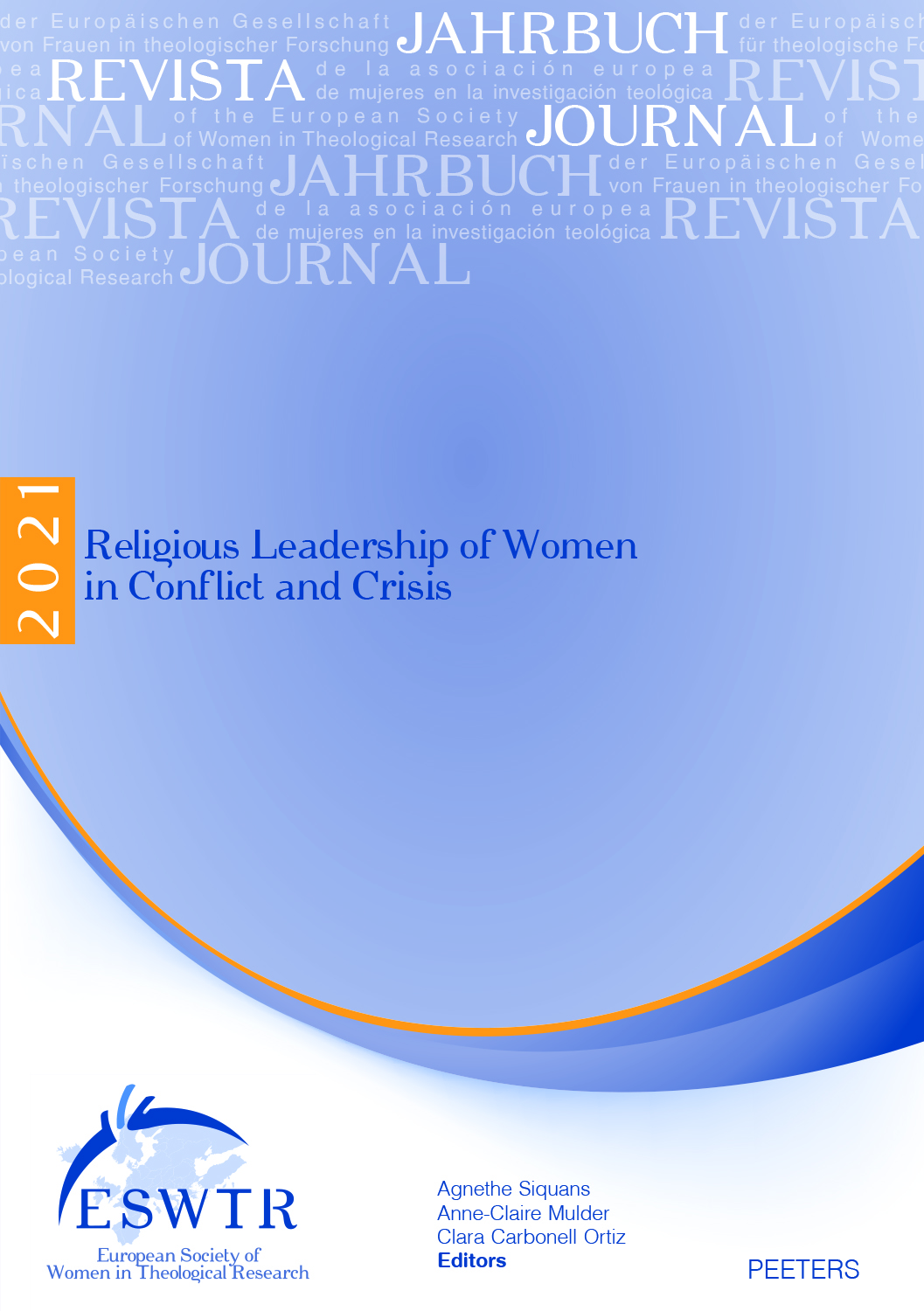 previous article in this issue previous article in this issue | next article in this issue  |

|
Document Details : Title: Salir en busca de espiritualidad feminista en el diálogo interreligioso Author(s): ESSER, Annette Journal: Journal of the European Society of Women in Theological Research Volume: 17 Date: 2009 Pages: 69-87 DOI: 10.2143/ESWTR.17.0.2042659 Abstract : Als feministische Theologin, die sich seit den 1990er Jahren im interreligiösen Bereich engagiert hat, begibt sich die Autorin auf Spurensuche nach Elementen feministischer Spiritualität im interreligiösen Dialog. Obwohl sich dort allerorten die Rede von 'Spiritualität' findet und diese so etwas wie einen gemeinsamen Nenner darstellt, wenn religiöse Erfahrungspraxis der verschiedenen Traditionen und Kulturen thematisiert werden soll, und obwohl es auch einen starken Bezug interreligiöser Organisationen zu politischen und religiösen Frauenorganisationen weltweit gibt, ist in diesem Dialogkontext die Rede von feministischer Theologie und Spiritualität immer noch eher suspekt. Denn gerade da, wo Abgrenzungen als notwendig erachtet und klare Identitäten ('man' ist katholisch oder buddhistisch…) als Voraussetzungen des Dialogs gefordert werden, stellt die konstruktive Bejahung religiös-kultureller Vielfalt seitens feministischer Spiritualität eine Provokation dar. Die Autorin findet nun Elemente feministischer Spiritualitäten (1) in den spirituellen Suchbewegungen westlicher Frauen 'zwischen den Religionen', die bis dato als synkretistisch abgelehnt werden; (2) im spirituellen Weg buddhistischer oder islamischer Feministinnen, die bis dato als Einzelgängerinnen galten; und (3) in den rituellen Praktiken von marginalisierten Frauen Asiens und anderer Kontinente, die von Seiten der offiziellen Weltreligionen als irrelevant betrachtet werden. Die Gemeinsamkeit in der Verschiedenheit feministischer Spiritualitäten hat sie dabei selbst im Traumbild des Whirlpools und im mystischen Bild der Quelle von Teresa von Avila visioniert. Nicht zuletzt diese Vision ermutigt die Autorin dazu, in einem Klima, in dem Synkretismus ein stetes Verdachtsmoment darstellt, zu behaupten, dass in Zukunft das feministisch-spirituelle Unterfangen, Grenzen zu überwinden, eine alternative Kultur im Grenzraum zu schaffen und Frauen am Rande zu bestätigen und zu ermutigen, nicht mehr bloß ein peripheres oder beliebiges Thema feministischer Theologie darstellt, sondern zum zentralen Thema des interreligiösen Dialogs selbst werden wird. As a feminist theologian engaged in an inter-religious organisation since the 1990s, the author is searching for elements of feminist spirituality in inter-religious dialogue. In this context, even though 'spirituality' is a favourite term that seems to serve as a mutual notion when a name is given to practical religious experience in the various traditions and cultures, and even though there is a strong relationship between inter-religious organisations and both political and religious women’s organisations worldwide, any talk about feminist theology and spirituality is still regarded as suspect. At precisely the point where boundaries are regarded as necessary and where clear-cut identities (one is Catholic or one is Buddhist) are postulated as basic conditions for dialogue, any kind of constructive affirmation of religious-cultural plurality from the side of feminist spirituality is felt to be provocative. The author finds elements of feminist spirituality (1) among Western women in their movements of spiritual quest ‘between the religions’ that have been considered syncretistic to date; (2) in the spiritual approaches of Buddhist or Muslim women who have so far been seen merely as individual searchers; and (3) in the ritual practices of marginalized women in Asia and other continents which – from the viewpoint of official world religions – have so far been looked at as irrelevant. Furthermore, she envisions a mutuality within the differences of feminist spiritualities in her own dream-image of the whirlpool and in the mystical image of the fountain used by Teresa of Avila. Not least, it is this vision that encourages the author to claim that, in a climate where syncretism is always suspected, for the future, the feminist-spiritual enterprise of transcending boundaries, of creating an alternative culture at the borderline and of affirming and encouraging women on the margins will no longer constitute a merely peripheral theme, but will become the central issue for inter-religious dialogue itself. |
 |
